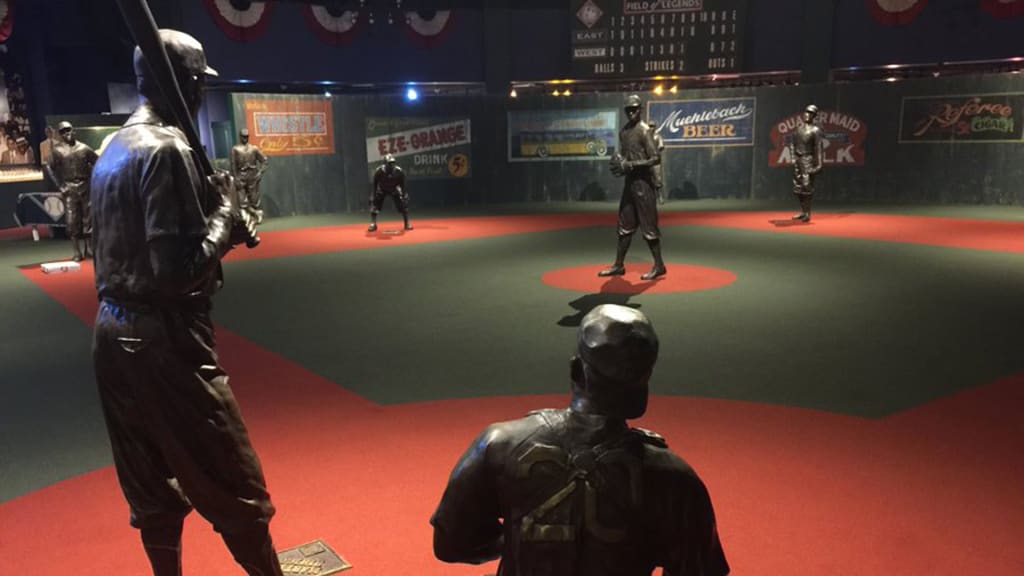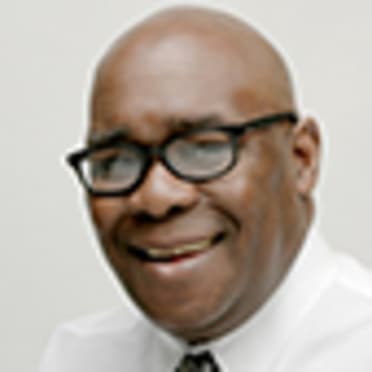
NEW YORK -- Bob Kendrick will celebrate his 58th birthday on Monday, but the next day will be an even bigger day for the president of the Negro Leagues Baseball Museum (NLBM). That’s the day the museum will open for the first time since March 14, when the coronavirus pandemic forced it to temporarily close its doors.
The NLBM plans to raise its profile by celebrating the 100th anniversary of the Negro Leagues through 2021, but for now, things will be a little different when fans visit the museum on East 18th Street, between Vine and Highland, just across from the Gem Theater in Kansas City, Mo. There will be limited hours (10 a.m. to 5 p.m. CT Monday through Saturday, and noon to 5 p.m. on Sunday) and increased sanitizing every day, and occupancy will be limited to 150 to 200 people at a time.
“I’m really excited. It has been a difficult time for me mentally [to have it] closed,” Kendrick said. “So I’m looking forward to getting the place reopened. Hopefully, we get people who will come down to the museum. We have all the protocols in place. People can come in safely. It’s really a great time, given what’s going on in our society, for people to come to the Negro League Baseball Museum. It’s going to be good to see life in the museum again.”
Although he had a difficult time closing the museum, Kendrick kept busy during the shutdown. He did everything he could to make the NLBM relevant, making appearances on MLB Network and with other news organizations to talk about the importance of the museum and to address the issue of race in the sport and society at large.
The NLBM is a privately funded, non-profit organization; annually renewing memberships to support the museum are available ranging from $25 to $1,000 (https://nlbm.com/membership/). Membership includes free admission for the year, a 10 percent discount on merchandise from the NLBM Extra Inning Store and advance information on special events. Members also receive a gift and additional benefits at each level of support.
Good friend Lauren Meyer was looking for a way to make money for the museum through the closure, and in April she decided to show her documentary, “The Other Boys of Summer,” on Zoom. No, it’s not about the Brooklyn Dodgers -- it’s about players who had fun showing their talents in the Negro Leagues. Fans paid $25 to watch the documentary; proceeds went to the museum.
Kendrick even hosted his first podcast for MLB Network Radio, a week after the death of George Floyd. “Baseball and Black America” featured six current players, including Pirates first baseman Josh Bell and Brewers center fielder Lorenzo Cain. All expressed outrage at Floyd’s death at the hands of Minneapolis police officers, and all advocated for justice for Floyd and for police reform to address the larger systemic issue of police brutality, especially against Black Americans.
“I was extremely honored that MLB Network Radio asked me to moderate that discussion on baseball and race in America with those amazing African American ballplayers,” Kendrick said. “The fact that they wanted to lend their voice also made me very proud. At the museum, we have the museum about social injustice. Our museum is about the civil rights movement. So these players have a legacy as it relates to not only the game, but the things this museum and this institution represents both on and off the field. So for me, to be here in that environment moderating that discussion really meant something.
“After that first month of [doing almost nothing], I might have been as busy as I’ve ever been, because I’ve been basically doing one interview after the other. The interviews [among other things] have kept me plenty busy. That's a good thing, because it has kept me on top of my game.”
Kendrick remains grateful that the NLBM has the support of Major League Baseball and the Major League Baseball Players Association. Both organizations made a joint donation of $1 million to the museum in February.
“I tell you what: The pandemic has hurt our operation," Kendrick said. "But it makes that gift [from MLB and the MLBPA] that much more meaningful, and timely, as we try to work our way out of what has been a very difficult, challenging economic situation for everyone, including the museum and cultural institution. With the help of Major League Baseball and the Players Association, it has certainly help lessen the blow.”
